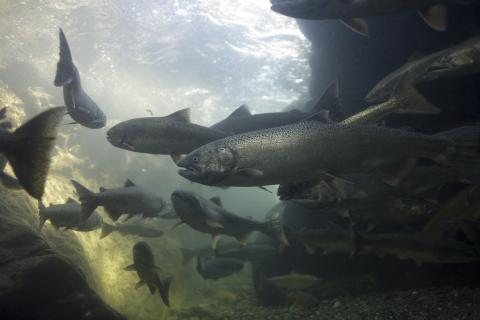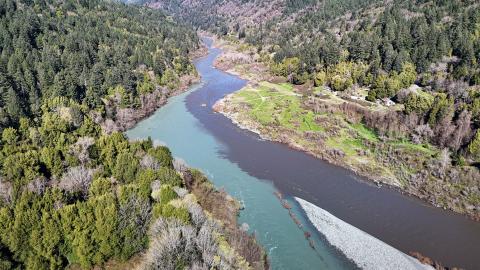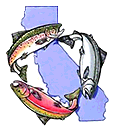Sessions at the 43rd Annual Salmonid Restoration Conference
2026 Concurrent Sessions
Concurrent Sessions are usually 3 hours and 15 minutes and should not exceed six speakers. Ideally, sessions will have a variety of speakers (e.g., agency personnel, restoration practitioner, policy maker, recovery planner, tribal / community representative, fisheries biologist, academic, etc.). SRF encourages gender balance and participation of people from diverse backgrounds. SRF has an Open Call for Abstracts, so all potential presenters will need to formally submit an abstract in order to be considered as a presenter. The First Call for Abstracts will open in September 2025. SRF will forward abstracts to potential session or workshop coordinators promptly. Concurrent sessions will take place on April 30 and May 1, 2026 at the Redding Civic Center.
Thursday, April 30, 2026
Against the Current: The Critical Need for Large-Scale Floodplain Reconnection in the Central Valley

Springing into Action: Spring Chinook Reintroduction in the Klamath Basin Post Dam Removal
Evaluating Process Based Restoration as a Method to Restore Ecosystem Resilience
Science and Research to Inform Management
Friday, May 1, 2026

Changing the Current: Lightning Tales from a New Generation
Session Coordinator: Ashley Shannon, Cal Trout
Restoration Strategy, Implementation, and Collaboration
Session Coordinator: Gwen Santos, Environmental Science Associates
